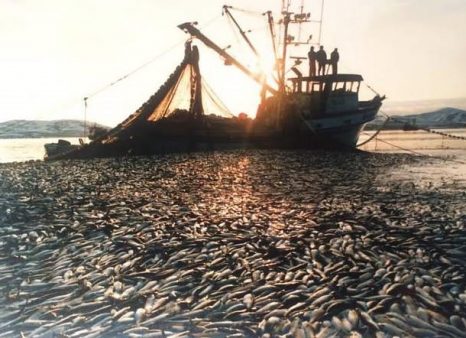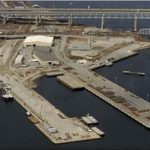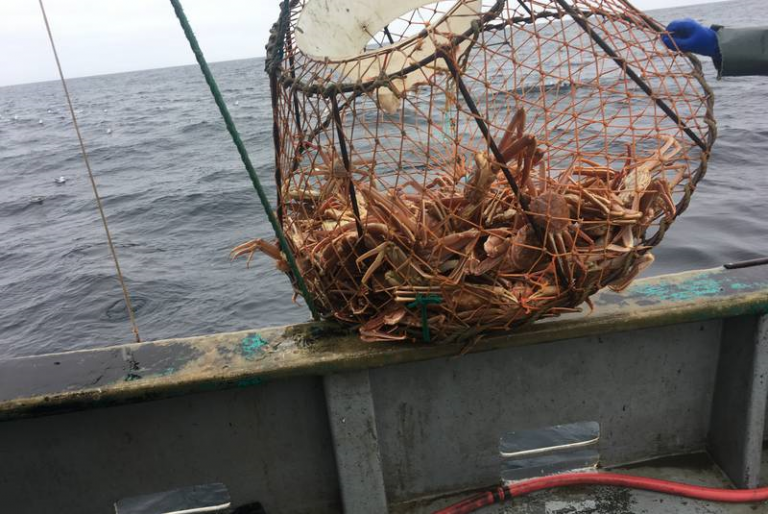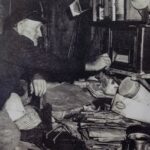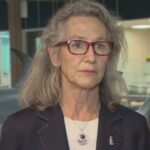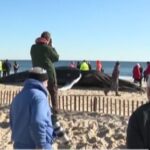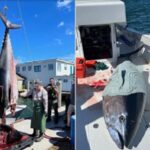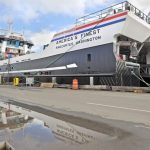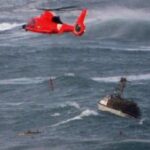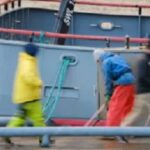Daily Archives: March 26, 2017
River of needles: Group seeks support as number of syringes in the Merrimack River soars
 Just a few years ago the junk that Clean River Project volunteers pulled out of the Merrimack River between Lowell and Haverhill consisted mostly of tires, shopping carts, toys, appliances, furniture and even entire vehicles. Every so often, they would come upon a syringe or two, which they would place into sharps containers for proper disposal. Rocky Morrison, president of the nonprofit Clean River Project, said he didn’t give it much thought until last year, when his volunteers saw a huge increase in the number of syringes they were finding. They collected more than 1,000 last year, and he said there are more out there. According to American Rivers, the Merrimack River is one of the three most important large rivers on the East Coast in its conservation value to migratory river herring and one of the six most important for 12 migratory fish species. Read the story here 19:25 (it’s disgusting.) Meanwhile A federal judge has ordered the National Marine Fisheries Service to revisit a decision not to list the blueback herring as a threatened species. Read the story here 19:42
Just a few years ago the junk that Clean River Project volunteers pulled out of the Merrimack River between Lowell and Haverhill consisted mostly of tires, shopping carts, toys, appliances, furniture and even entire vehicles. Every so often, they would come upon a syringe or two, which they would place into sharps containers for proper disposal. Rocky Morrison, president of the nonprofit Clean River Project, said he didn’t give it much thought until last year, when his volunteers saw a huge increase in the number of syringes they were finding. They collected more than 1,000 last year, and he said there are more out there. According to American Rivers, the Merrimack River is one of the three most important large rivers on the East Coast in its conservation value to migratory river herring and one of the six most important for 12 migratory fish species. Read the story here 19:25 (it’s disgusting.) Meanwhile A federal judge has ordered the National Marine Fisheries Service to revisit a decision not to list the blueback herring as a threatened species. Read the story here 19:42
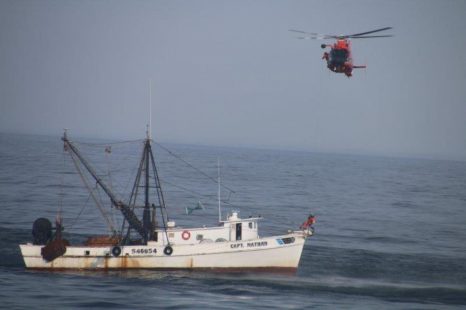
Coast Guard medevacs fisherman 50 miles E of Chincoteague, VA
The Coast Guard medevaced an injured man 50 miles east of Chincoteague, Virginia, Sunday. Watchstanders at 5th District command center in Portsmouth received an Electronic Position Indicating Radio Beacon, (EPIRB) alert from the 75-foot trawler Capt Nathan with three people aboard. Watchstanders diverted the U.S. Coast Guard Cutter Escanaba and an MH-65D Dolphin helicopter crew from Coast Guard Air Station Atlantic City to the scene. The crew of the Escanaba established communications with the crew and discovered the captain was suffering symptoms of a stroke. The helicopter crew arrived on scene and hoisted the man and transferred him to Cape May Airport, Cape May, New Jersey, where another helicopter crew from Air Station Atlantic City transferred the patient to AtlantiCare Regional Medical Center in Atlantic City, New Jersey. more images here 15:57
Processor Fined for dumping oily bilge water and raw sewage in Kodiak Waters
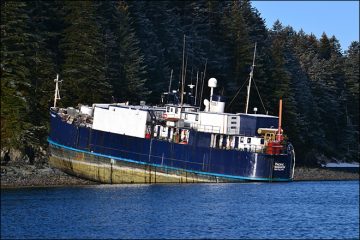 A Washington processing company that owns a Kodiak-based vessel was sentenced in federal court to pay $50,000 in fines after the vessel illegally discharged raw sewage into Chiniak Bay and St. Paul Harbor in Kodiak. In addition, the primary operator of the F/V Pacific Producer was sentenced to a $10,000 fine. Both the operator and the company will serve five years probation. According to a press release from the U.S. Attorney’s office in Anchorage, East West Seafoods LLC was sentenced for violating the Act to Prevent Pollution from Ships, the Clean Water Act, and the Refuse Act, by intentionally discharging oily bilge water and raw sewage. East West owns the F/V Pacific Producer. The primary owner of the processing company and operator of the vessel is 78-year-old Christos Tsabouris of Kodiak. Read the story here 14:40
A Washington processing company that owns a Kodiak-based vessel was sentenced in federal court to pay $50,000 in fines after the vessel illegally discharged raw sewage into Chiniak Bay and St. Paul Harbor in Kodiak. In addition, the primary operator of the F/V Pacific Producer was sentenced to a $10,000 fine. Both the operator and the company will serve five years probation. According to a press release from the U.S. Attorney’s office in Anchorage, East West Seafoods LLC was sentenced for violating the Act to Prevent Pollution from Ships, the Clean Water Act, and the Refuse Act, by intentionally discharging oily bilge water and raw sewage. East West owns the F/V Pacific Producer. The primary owner of the processing company and operator of the vessel is 78-year-old Christos Tsabouris of Kodiak. Read the story here 14:40
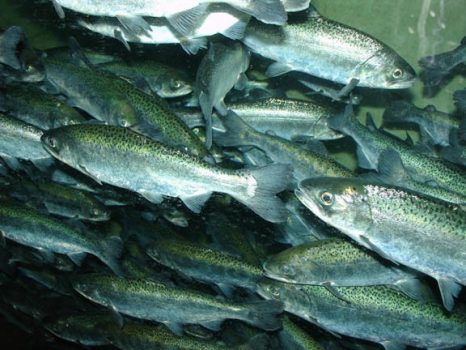
In ‘Crisis,’ Yuroks Suspend Commercial Salmon Season
For the second year in a row, the Yurok Tribe will not have a commercial fishery — a devastating blow to the tribe’s culture and economy. “We are in crisis mode,” said Yurok Tribal Chair Thomas O’Rourke in a press release that lamented poor conditions on the Klamath River that have led to historically low salmon returns. “The Klamath is our grocery store, our church and our main highway. It’s our lifeline. We will leave no stone unturned in search of additional short-term and long-term solutions to address the most terrible fisheries disaster in the Tribe’s history.” The release comes after the Pacific Fisheries Management Council released its predicted Chinook salmon returns for 2017 at 11,000 fish — the lowest on record — and the tribe’s fish harvest allocation at 650 fish, or one for every 10 tribal members. The predicted return comes after two years of disease outbreaks in juvenile fish due to low flows and elevated water temperatures in the Klamath River. continue reading the story here 13:44
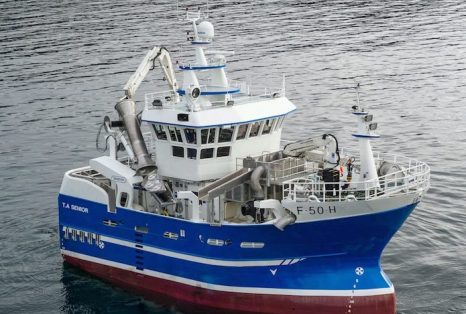
Small – but packs a punch!
It isn’t often that a 15 metre fishing boat hits the industry headlines but the launching in Norway last month of the TA Senior has certainly grabbed everyone’s attention. While dimensions of 15m in length with an 8m beam may not be every fisherman’s preference, in this particular case it works and combines to produce an extremely versatile and hardy vessel fit for operating in a diverse range of fisheries. While the biggest claim to fame in recent times from the Stadyard shipyard, located at Raudeberg near Måløy on Norway’s west coast, may be the production of the eye-catching 70m purse seiner/pelagic vessel Torbas two years ago (now the Faroese Høgaberg), it is the latest building of TA Senior for Akkarfjord fisherman Morten Ingebrigtsen in Finnmark that has again brought this yard into the limelight. continue reading the article here 11:43
Alaska fishermen lobby Navy to delay training exercises scheduled for May
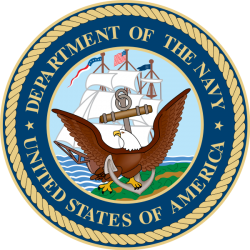 The required permits are not yet in hand but the U.S. Navy is moving ahead on plans to conduct war training exercises in the Gulf of Alaska for two weeks in early May. Meanwhile, nine coastal communities have signed resolutions asking the Navy to instead conduct its training between September and mid-March, less-sensitive times for migrating salmon, birds and marine mammals. “It’s not that we don’t want the Navy to do their training — it’s the time and locations,” said Emily Stolarcyk, program director for the Eyak Preservation Council of Cordova. “The community resolutions say that we are the people who depend on commercial, subsistence and recreational fishing,” she added. “The Navy exercises are planned during the most important breeding and migratory periods for salmon, birds, whales and marine mammals. About 90 percent of the training area is designated as essential fish habitat for all five species of Pacific salmon. May is the worst time to be doing this.” continue reading the article here 11:07
The required permits are not yet in hand but the U.S. Navy is moving ahead on plans to conduct war training exercises in the Gulf of Alaska for two weeks in early May. Meanwhile, nine coastal communities have signed resolutions asking the Navy to instead conduct its training between September and mid-March, less-sensitive times for migrating salmon, birds and marine mammals. “It’s not that we don’t want the Navy to do their training — it’s the time and locations,” said Emily Stolarcyk, program director for the Eyak Preservation Council of Cordova. “The community resolutions say that we are the people who depend on commercial, subsistence and recreational fishing,” she added. “The Navy exercises are planned during the most important breeding and migratory periods for salmon, birds, whales and marine mammals. About 90 percent of the training area is designated as essential fish habitat for all five species of Pacific salmon. May is the worst time to be doing this.” continue reading the article here 11:07
CETA: Liberals’ passivity a detriment to our fishery
 The Comprehensive Economic Trade Agreement (CETA) was approved with Premier Dwight Ball and Prime Minister Justin Trudeau in office. So, what was negotiated to transition our fishing industry to a more competitive, technologically advanced, scientific and market-driven industry? Apparently, according to Premier Ball, nothing! An area of provincial jurisdiction was relinquished to Ottawa to use in their negotiations with the EU, with only silence from the Ball Liberals for the past 15 months, despite a signed letter from Trudeau promising that this province would be given a $400-million fisheries investment fund as a condition of giving up minimum processing requirements (MPRs). There was no mention of an “Atlantic” fisheries fund in his letter.In 2014, Trudeau wrote: “your government’s support of the CETA was earned, in part, by a promise from the Government of Canada to help the industry adjust to the new reality. That promise should be honoured.” He referred specifically to the $400-million fund for Newfoundland and Labrador. Premier Ball was not able to deliver on that written commitment. continue reading the op-ed here 10:18
The Comprehensive Economic Trade Agreement (CETA) was approved with Premier Dwight Ball and Prime Minister Justin Trudeau in office. So, what was negotiated to transition our fishing industry to a more competitive, technologically advanced, scientific and market-driven industry? Apparently, according to Premier Ball, nothing! An area of provincial jurisdiction was relinquished to Ottawa to use in their negotiations with the EU, with only silence from the Ball Liberals for the past 15 months, despite a signed letter from Trudeau promising that this province would be given a $400-million fisheries investment fund as a condition of giving up minimum processing requirements (MPRs). There was no mention of an “Atlantic” fisheries fund in his letter.In 2014, Trudeau wrote: “your government’s support of the CETA was earned, in part, by a promise from the Government of Canada to help the industry adjust to the new reality. That promise should be honoured.” He referred specifically to the $400-million fund for Newfoundland and Labrador. Premier Ball was not able to deliver on that written commitment. continue reading the op-ed here 10:18
Measuring flounder a complex undertaking with a big impact
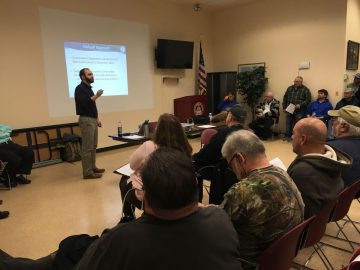 It’s likely few people have written more about summer flounder than Mark Terceiro. Terceiro has published a 44-page journal article about the science, politics and litigation surrounding the species from 1975 to 2000. A 32-page follow-up covered the period from 2001 to 2010, and another article regarding developments in recent years is in the works. But it’s Terceiro’s summer flounder stock assessment update, released by the National Oceanic and Atmospheric Administration in December, that has him in the crosshairs of New Jersey politicians and recreational fishing leaders. Terceiro, a research fishery biologist at NOAA’s Northeast Fisheries Science Center, said a lot of information goes into a stock assessment. “The catch is, from both commercial and recreational, very important — that it be accurate,” Terceiro added. “We try — the government, the states — (to) go to great lengths to make sure the catch reports are as accurate as they can get.” continue reading the article here 09:20
It’s likely few people have written more about summer flounder than Mark Terceiro. Terceiro has published a 44-page journal article about the science, politics and litigation surrounding the species from 1975 to 2000. A 32-page follow-up covered the period from 2001 to 2010, and another article regarding developments in recent years is in the works. But it’s Terceiro’s summer flounder stock assessment update, released by the National Oceanic and Atmospheric Administration in December, that has him in the crosshairs of New Jersey politicians and recreational fishing leaders. Terceiro, a research fishery biologist at NOAA’s Northeast Fisheries Science Center, said a lot of information goes into a stock assessment. “The catch is, from both commercial and recreational, very important — that it be accurate,” Terceiro added. “We try — the government, the states — (to) go to great lengths to make sure the catch reports are as accurate as they can get.” continue reading the article here 09:20






